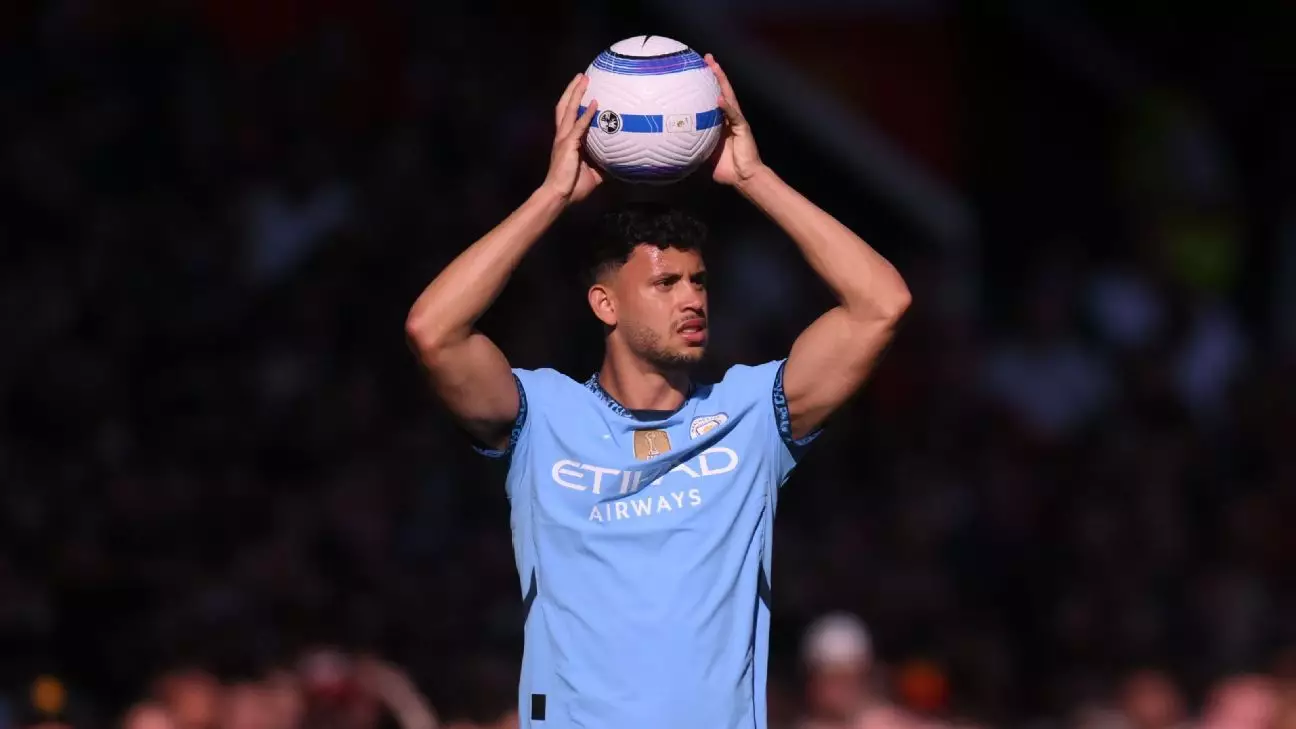In a surprising turn of events, Manchester City’s head coach, Pep Guardiola, has expressed a vision for Matheus Nunes that strays from the player’s established position as a midfielder. Following Nunes’s signing from Wolverhampton Wanderers in a significant £53 million ($70 million) transfer, expectations were high for him to seamlessly fill the role left by Ilkay Gündogan. However, Guardiola has recently revealed that he believes Nunes is “not clever enough” for the midfield duties that have characterized his career thus far. Rather than focusing on nurturing Nunes’s skills in his original position, Guardiola seems to pivot towards a reassignment that could redefine the player’s future at the club.
Nunes’s New Role: Right-Back Evolution
After experiencing a series of defensive frailties following Kyle Walker’s loan departure to AC Milan, Guardiola has resorted to fielding Nunes as a right-back. In a recent Premier League match against Manchester United, Nunes’s performance showcased glimpses of potential in this unconventional role. Guardiola emphasized Nunes’s impressive physical attributes and learning curve, suggesting that these qualities might be better suited for the right-back position moving forward. While it raises eyebrows for a manager known for tactical ingenuity to label a player’s intelligence as insufficient for midfield, it also presents an intriguing opportunity: reimagining a player who joined with specific expectations against a backdrop of evolving tactical requirements.
Surprising Adaptability: Learning Under Pressure
Nunes’s ability to adapt to a defensive role amid intense scrutiny is a testament to his work ethic and resilience. Guardiola’s comments about Nunes’s performance highlight a potential silver lining in this transitional phase. While some may view the manager’s critique as harsh, it could also be interpreted as a candid acknowledgment of the challenges that come with the midfield position, especially at a club where the standards are exceptionally high. The transformation from midfielder to right-back is characterized not only by physicality and defensive responsibilities but also by mental acuity and game awareness—qualities Nunes will need to cultivate.
The Broader Implications for Manchester City
This move could hold broader implications for Manchester City’s tactical flexibility and their squad depth. By successfully transitioning Nunes into the right-back slot, Guardiola might unlock additional strategic dimensions for his team, allowing for fluidity between attacking and defensive phases. However, it also raises questions about the broader structure of the squad. Despite signing new defenders, the reliance on Nunes as an immediate solution highlights potential deficiencies in City’s depth at the back. Engaging Nunes in a role that is, at least for now, a temporary fix sheds light on the complexities of squad management in elite football.
As Manchester City continues to chase glory on multiple fronts, the evolution of Matheus Nunes from a midfield signing to a potential starting right-back encapsulates the unpredictable nature of football. While Guardiola’s trust in the player’s adaptability is commendable, it also underscores the reality that each season brings its own set of challenges, potentially redefining both player trajectories and managerial strategies.

